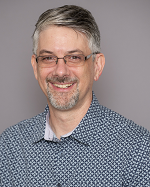
This is the professional website of Brian A. Hoey–university administrator and professional anthropologist.
I’m Brian A. Hoey, Dean of the Honors College and Professor of Anthropology at Marshall University in Huntington, West Virginia.
As both a university administrator and professional anthropologist, I work at the intersection of institutional vision and lived experience. My leadership focuses on transforming honors education into a catalyst for ethical action, integrative learning, and community impact. I view honors not as a reward, but as a responsibility—to think with depth, act with care, and engage the world with purpose.
My scholarly work bridges local and global contexts. I’ve conducted research in the United States and Southeast Asia, with a longstanding commitment to communities in the Appalachian region where I now live and work. As a Fulbright Scholar in Indonesia, I studied the complexities of building community and cultivating belonging in government-sponsored migration settlements—research that continues to shape my understanding of space, identity, and development.Across projects, I explore how people navigate profound life transitions—from postindustrial migration and the search for meaningful work to collective responses to environmental disaster. My research examines themes of personhood and place, narrative identity, community-making, and the contested intersections of health, labor, and environment.
Recent work includes I’m Afraid of That Water, a collaborative ethnography of the 2014 Elk River chemical spill. Developed alongside more than fifty community members and scholars, the project foregrounds the lived experiences of West Virginians confronting the failures of public infrastructure, environmental oversight, and corporate accountability.
Whether guiding institutional strategy, mentoring students, or conducting fieldwork, I aim to cultivate spaces for reflection, connection, and transformation. This site offers a window into that work—academic, administrative, and personal.
2025-07-27